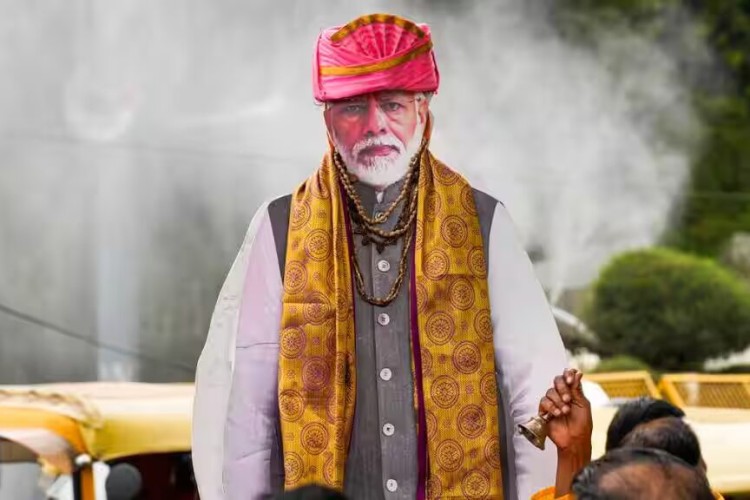
The results of the General Election 2024 were shocking, with the ruling party failing to cross the majority mark on its own. While the exit polls predicted a landslide victory for the Prime Minister Narendra Modi-led BJP, the party has fallen way short of the 272 mark. Though it may form the government along with its coalition partners, one cannot be sure about the longevity of such a coalition. While the common voter is still swayed by Modi’s charisma, they do not want the ruling party to take them for granted. The message is clear: focus more on issues that matter to us instead of harping on Hindu-Muslim rhetoric.
Even if the party comes back to power, it will be a humbled entity. The opposition alliance, INDIA, far outperformed expectations, with late counts predicting that the alliance will win more than 230 seats. INDIA, comprising more than 20 national and regional opposition parties, came together in this election with the aim of defeating Modi, who has been in power since 2014.
READ | Spectrum auctions: Telco enthusiasm fades in latest round
Regardless of who forms the government, the results are a wake-up call for Modi and the BJP which has enjoyed a brutal majority since 2014. The success of the INDIA coalition proved that voters are finally rising above issues like Ayodhya and Article 370. Resting on past laurels might not be enough to sway voters forever. After the construction of the Ram Mandir in Ayodhya, which was the BJP’s only mega electoral plank, the ruling party did not have a significant issue to rally around.
Election 2024: What went wrong for the BJP
The government failed dismally in addressing the ground realities. A recent article in Policy Circle titled “Rising unemployment brings election promises under increased scrutiny” had highlighted that employment and jobs continued to be major talking points in these elections, and unemployment remained a concern among voters. The government’s own data confirmed a significant decline in new job creation in India. Naturally, those affected by this ground reality must have voted against the BJP’s rosy promises.
Other than rising unemployment, high inflation may have significantly affected voters this time. Prices of essential commodities such as gas cylinders and fuel are alarmingly high. Both unemployment and inflation are issues that the INDIA alliance continued to raise. The coalition pointed to the lack of quality jobs and rising inequality between the rich and poor, despite an overall shining economy. The rural economy has remained subdued, and the hinterland is where most voters live.
Social policies and recent farmer protests also played a significant role in swaying voter sentiment. The controversial farm laws, which were eventually repealed after widespread protests, left a lasting impact on the rural electorate. Many farmers felt betrayed by the BJP’s initial insistence on the laws, viewing them as a threat to their livelihoods. The opposition leveraged this discontent, pledging to implement more farmer-friendly policies and ensure fair pricing for agricultural products.
The Agniveer scheme also worked against the BJP, as seen from the party’s poor performance in Rajasthan and Haryana. These two states contribute a high number of youth to the defence forces and the paramilitary.
One of the biggest shocks of the early results was the apparent losses faced by the BJP in Uttar Pradesh. UP, the country’s most populous and politically important state with 80 seats, is seen as a bellwether for the rest of the country. The state suddenly became a game-changer. UP dealt a body blow to the party as the Opposition stressed that if the NDA is given a heavy mandate, the alliance may remove reservations by amending the Constitution. This may be another factor that played against the BJP’s prospects in the state.
The opposition INDIA gained through its positive campaign, where it promised monthly doles and other welfare schemes. A sizable chunk of voters may have also been swayed by Rahul Gandhi’s irresistible offer of wealth redistribution, which was cheered on by some prominent global economists.
The bloc also promised to create employment and scrap Agniveer, which seemed to have gone in favour of the alliance. The unity of all parties, despite their differences, was a major show of strength. The INDIA alliance consolidated fragmented opposition votes, taking away the BJP’s substantial advantage of minority votes being divided among the opposition parties.
The stock market took a major hit as the counts started coming in. While the markets rose to a record level on Monday after exit polls promised a clear BJP victory, the bourses fell sharply today, matching the previous record lows seen in March 2020. The rupee also fell against the US dollar. The biggest disappointment for the market is the fact that the BJP did not secure a clear majority.
